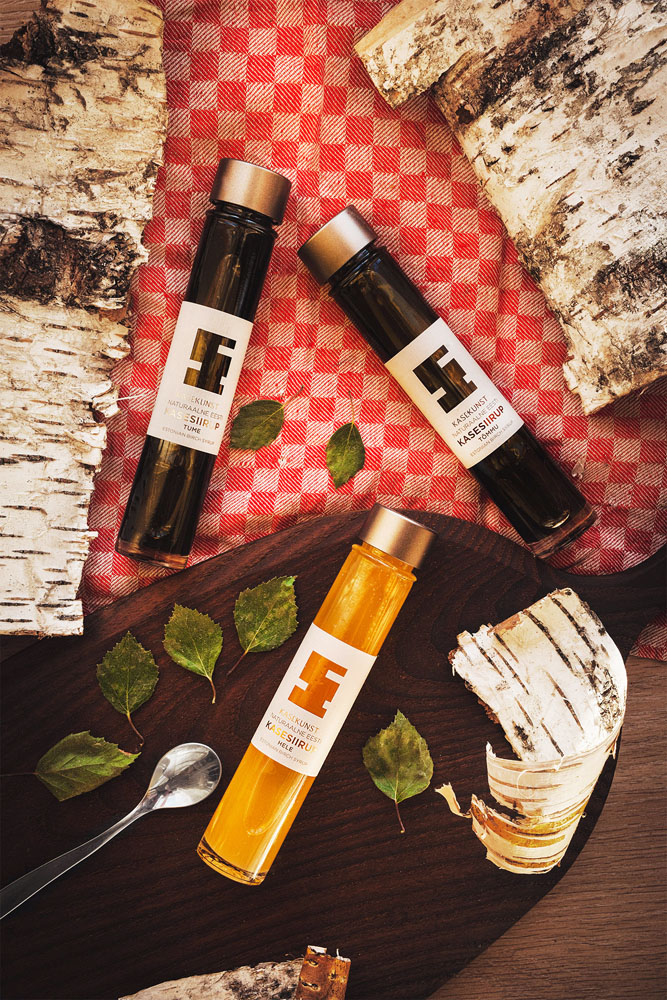The sugar content of the birch sap is 1 per cent on average. Thus it takes 12-14 litres of birch sap to make 100 ml birch syrup – about double the amount in comparison to maple syrup. The naturally occurring sugars in birch syrup are glucose and fructose, rather than sucrose as in maple syrup. Birch syrup also contains a range of minerals, being especially rich in calcium and potassium. The glycemic index of birch syrup is 50 on average, a little lower than those of maple syrup or honey.
The techniques of concentrating birch sap intensify the rich woodland taste ensemble characteristic of birch juices. We offer syrups in a number of taste and colour nuances, ranging from light, sweet and delicate syrup, to dark and pungent, with morello-like acidity. The qualities of the syrup depend partly on terroir, the natural qualities of the soil and the period of sap collection, partly on the degree to which the sap is concentrated and caramelised.
Birch syrup is still quite rare and difficult to come by. Presently only about 10,000 litres a year are made worldwide, most of it in the United States and Canada, compared to the 30,000,000 litres of maple syrup. Our syrups are very versatile and can make even a simple dish stand out. They can be used in salad dressings, marinades and barbecue sauces, for glazing, on breakfast cereals, ice cream and other desserts, in cocktails, and in many other ways.

